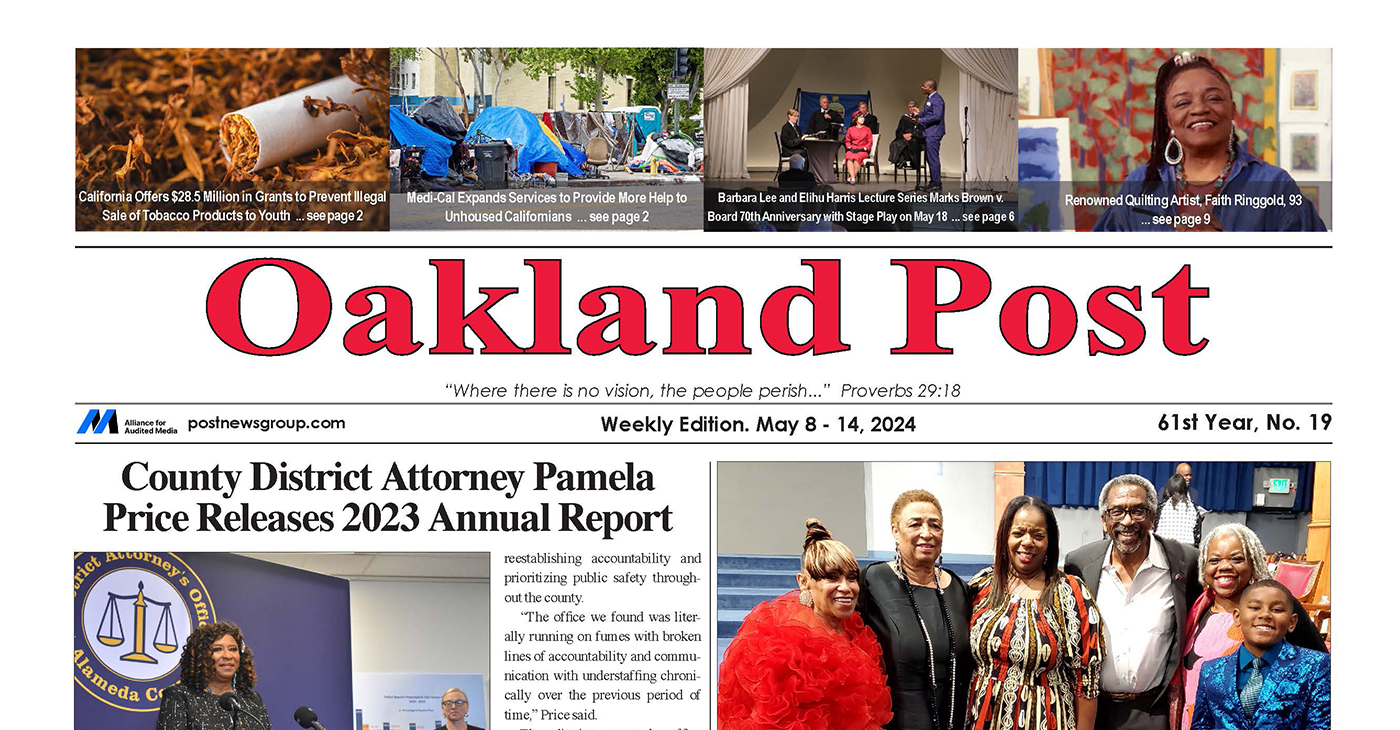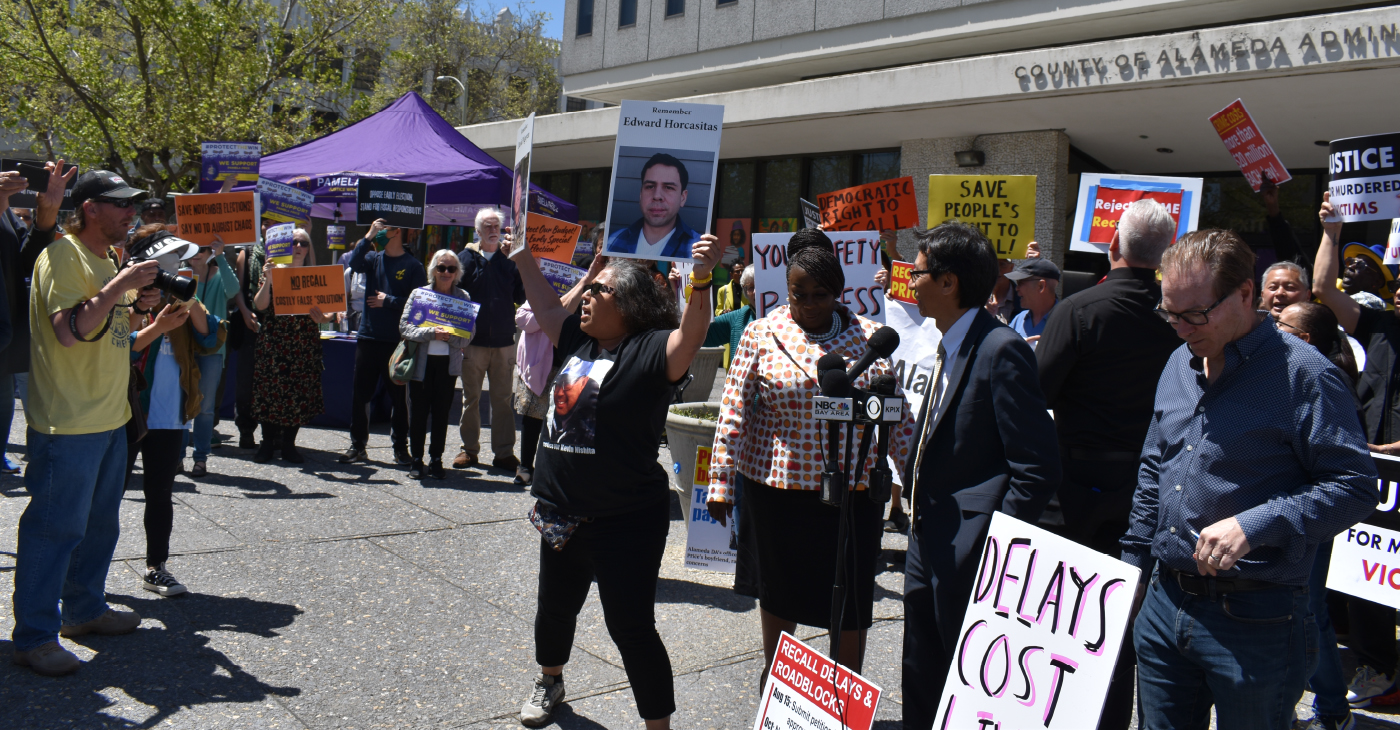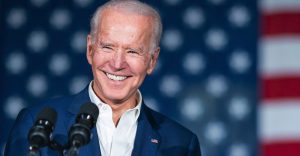Politics
States Watching Medicaid Standoff Between Florida, Obama

KELLI KENNEDY, Associated Press
MIAMI (AP) — The Obama administration rebuffed Florida’s Gov. Rick Scott’s proposal to extend federal funds for hospitals that treat the uninsured, increasing the pressure on states that have refused to expand coverage for low-income people under the president’s health care law.
The decision means Florida’s already acrimonious state budget process will likely become tenser. The standoff also has implications for eight other states, including Texas, which draw billions of dollars from the same pool of hospital funds. And like Florida, several are also refusing to expand Medicaid coverage. Republican leaders in those states are adamant about not expecting any federal money tied to Obama’s Affordable Care Act.
Florida’s funding is the first to expire on June 30 and Scott has filed a lawsuit, with support from Texas and Kansas, alleging the federal government is breaking the law by coercing states to expand Medicaid in order to get the hospital funds. The hospital funds are an optional program, not entitlement programs like Medicaid, meaning the federal government has broad discretion whether to grant them, experts say.
The snub from the Obama administration came Wednesday when Scott met with Health and Human Services Secretary Sylvia Burwell in Washington. The Republican governor wants the administration to extend $1 billion in low-income pool funds for hospitals, but the federal government wants Florida to expand Medicaid, arguing its more efficient to give people insurance than to pay hospitals for caring for the uninsured retroactively.
Neither side has budged. The gridlock stalled Florida’s legislative session, prompting the House to abruptly adjourn three days early last week. Scott and lawmakers had asked the Obama administration to bypass a roughly two-month-long required public comment and review period and give a preliminary answer on the funds so lawmakers could agree on a budget when they convene for a special session in June. Burwell declined.
The Obama administration also noted in its statement that Florida and other states have known for well over a year that the funds were ending and Florida was granted an extension last year on the condition it seek alternative funding.
It’s unlikely the federal government will drop the hospital funds entirely, but the Obama administration has been clear that those states will get less funding because the Obama administration will not pay for health care for low-income individuals that would be covered in a Medicaid expansion.
Scott told the Obama administration that taking away the money will hurt Florida families, yet the governor refuses to expand Medicaid insurance to more than 800,000 low-income Floridians under a proposal from the Senate that would eventually allow them to buy private insurance.
Two years ago, when Scott was getting ready to run for re-election, he spoke in support of Medicaid expansion, calling it a compassionate and common sense solution. He’s since reversed his position, saying Floridians will have to pay a share of it, and that will mean higher taxes.
The expansion is fully funded by Washington through 2016, and never dips below 90 percent after. That’s well above what the federal government pays now for the regular Medicaid population.
Most Texas Republicans also remain staunchly opposed to Medicaid expansion. The state’s existing five-year, nearly $30 billion Medicaid waiver — which includes the hospital funds — is set to expire in September 2016. Republican leaders in Tennessee’s Legislature also oppose Medicaid expansion, even though Gov. Bill Haslam has pushed for it.
Texas Rep. John Zerwas, an anesthesiologist, supports an alternative to Medicaid expansion that would offer coverage to low-income people. The Republican doesn’t think the hard line approach the feds are taking will change lawmakers’ stance in his state.
“My sense is people will just continue to be, at least in Texas, very opposed to the expansion,” he said.
Copyright 2015 The Associated Press. All rights reserved. This material may not be published, broadcast, rewritten or redistributed.
Activism
Oakland Post: Week of May 8 – 14, 2024
The printed Weekly Edition of the Oakland Post: Week of May May 8 – 14, 2024

To enlarge your view of this issue, use the slider, magnifying glass icon or full page icon in the lower right corner of the browser window. ![]()
Activism
S.F. Black Leaders Rally to Protest, Discuss ‘Epidemic’ of Racial Slurs Against Black Students in SF Public School System
Parents at the meeting spoke of their children as no longer feeling safe in school because of bullying and discrimination. Parents also said that reported incidents such as racial slurs and intimidation are not dealt with to their satisfaction and feel ignored.

By Carla Thomas
San Francisco’s Third Baptist Church hosted a rally and meeting Sunday to discuss hatred toward African American students of the San Francisco Unified School District (SFUSD).
Rev. Amos C. Brown, president of the San Francisco NAACP and pastor of Third Baptist Church, along with leadership from local civil rights groups, the city’s faith-based community and Black community leadership convened at the church.
“There has been an epidemic of racial slurs and mistreatment of Black children in our public schools in the city,” said Brown. “This will not be tolerated.”
According to civil rights advocate Mattie Scott, students from elementary to high school have reported an extraordinary amount of racial slurs directed at them.
“There is a surge of overt racism in the schools, and our children should not be subjected to this,” said Scott. “Students are in school to learn, develop, and grow, not be hated on,” said Scott. “The parents of the children feel they have not received the support necessary to protect their children.”
Attendees were briefed last Friday in a meeting with SFUSD Superintendent Dr. Matt Wayne.
SFUSD states that their policies protect children and they are not at liberty to publicly discuss the issues to protect the children’s privacy.
Parents at the meeting spoke of their children as no longer feeling safe in school because of bullying and discrimination. Parents also said that reported incidents such as racial slurs and intimidation are not dealt with to their satisfaction and feel ignored.
Some parents said they have removed their students from school while other parents and community leaders called on the removal of the SFUSD superintendent, the firing of certain school principals and the need for more supportive school board members.
Community advocates discussed boycotting the schools and creating Freedom Schools led by Black leaders and educators, reassuring parents that their child’s wellbeing and education are the highest priority and youth are not to be disrupted by racism or policies that don’t support them.
Virginia Marshall, chair of the San Francisco NAACP’s education committee, offered encouragement to the parents and students in attendance while also announcing an upcoming May 14 school board meeting to demand accountability over their mistreatment.
“I’m urging anyone that cares about our students to pack the May 14 school board meeting,” said Marshall.
This resource was supported in whole or in part by funding provided by the State of California, administered by the California State Library via California Black Media as part of the Stop the Hate Program. The program is supported by partnership with California Department of Social Services and the California Commission on Asian and Pacific Islander American Affairs as part of the Stop the Hate program. To report a hate incident or hate crime and get support, go to CA vs Hate.
Alameda County
Board of Supervisors Accepts Certification of Signatures, Will Schedule Recall Election May 14
The Alameda Board of Supervisors unanimously accepted the certification of the results of the valid signatures submitted for the recall of District Attorney Pamela Price on Tuesday evening. The Board will set the election date at a special meeting on May 14. Before the meeting, recall proponents and opponents held separate press conferences to plead their cases to the Board and residents of Alameda County.

By Magaly Muñoz
The Alameda Board of Supervisors unanimously accepted the certification of the results of the valid signatures submitted for the recall of District Attorney Pamela Price on Tuesday evening. The Board will set the election date at a special meeting on May 14.
Before the meeting, recall proponents and opponents held separate press conferences to plead their cases to the Board and residents of Alameda County.
Price, who up until this point has made little public comment about the recall, held her press conference in Jack London to announce that the California Fair Political Practices Commission has opened an investigation into the finances of the Save Alameda For Everyone (SAFE) recall campaign.
The political action committee (PAC), Reviving the Bay Area, has been the largest contributor to the SAFE organization and has allegedly donated over half a million dollars to the recall efforts.
“Between September 2023 and November 2023, [Revive the Bay Area] donated approximately $578,000 to SAFE without complying with the laws that govern all political committees in California,” Price said.
Price accused the recall campaigns of using irregular signature-gathering processes, such as paying gatherers per signature, and using misleading information to get people to sign their petitions.
SAFE held their own press conference outside of the Alameda County Administration Building at 1221 Oak St. in Oakland, once again calling for the Board to certify their signatures and set a date for the recall election.
Their press conference turned contentious quickly as Price’s “Protect the Win” supporters attempted to yell over the SAFE staff and volunteers. “Stop scapegoating Price” and “Recall Price” chants went on for several moments at a time during this event.
Families of victims urged the Board to think of their loved ones whose lives are worth much more than the millions of dollars that many opponents of the recall say is too much to spend on a special election.
The Registrar of Voters (ROV) estimates the special election could cost anywhere from $15 to $20 million, an amount that is not in their budget.
The Board was presented with several options on when and how to conduct the recall election. They have to set a date no less than 88 days or more than 125 days after May 14, meaning the date could fall anywhere from late July to September.
But the County charter also states that if a general election takes place within 180 days of their scheduling deadline, the Board could choose to use the November ballot as a way to consolidate the two events.
In the event that Price is recalled, the Supervisors would appoint someone to fill the vacancy, though neither the County nor the California charter specifies how long they would have to pick a replacement.
The appointee would serve as district attorney spot until the next election in 2026. Afterwards, either they, if they run and win, or a newly elected candidate would serve the rest of Price’s six-year term until 2029. Price is unique as the only district attorney wo serves a term of six years.
The Board acknowledged that they knew last fall that this recall would come with its own set of complications when Measure B, which changed the local recall charter to match California’s, was first brought to their consideration.
Supervisors Nate Miley and David Haubert opposed discussing the measure, stating that the public would think that the Board was attempting to influence the recall campaign that had already taken off months prior.
“I think ultimately this feels like it’s going to end up in court, one way or the other, depending on who files what,” Haubert said.
Price’s legal team told the Post that the district attorney intended to consider all legal options should the recall election take place.
Miley stated that while he was in support of the amendment to the charter, he did not think it was right to schedule it for the March ballot as it would ultimately cause confusion for everyone involved.
“It has produced some legal entanglements that I think, potentially, could’ve been avoided,” Miley said.
-

 City Government1 week ago
City Government1 week agoCourt Throws Out Law That Allowed Californians to Build Duplexes, Triplexes and RDUs on Their Properties
-

 Community4 weeks ago
Community4 weeks agoFinancial Assistance Bill for Descendants of Enslaved Persons to Help Them Purchase, Own, or Maintain a Home
-

 Activism2 weeks ago
Activism2 weeks agoOakland Post: Week of April 24 – 30, 2024
-

 Business4 weeks ago
Business4 weeks agoV.P. Kamala Harris: Americans With Criminal Records Will Soon Be Eligible for SBA Loans
-

 Community4 weeks ago
Community4 weeks agoAG Bonta Says Oakland School Leaders Should Comply with State Laws to Avoid ‘Disparate Harm’ When Closing or Merging Schools
-

 Community3 weeks ago
Community3 weeks agoOakland WNBA Player to be Inducted Into Hall of Fame
-

 Community3 weeks ago
Community3 weeks agoRichmond Nonprofit Helps Ex-Felons Get Back on Their Feet
-

 Community3 weeks ago
Community3 weeks agoRPAL to Rename Technology Center for Retired Police Captain Arthur Lee Johnson






















































